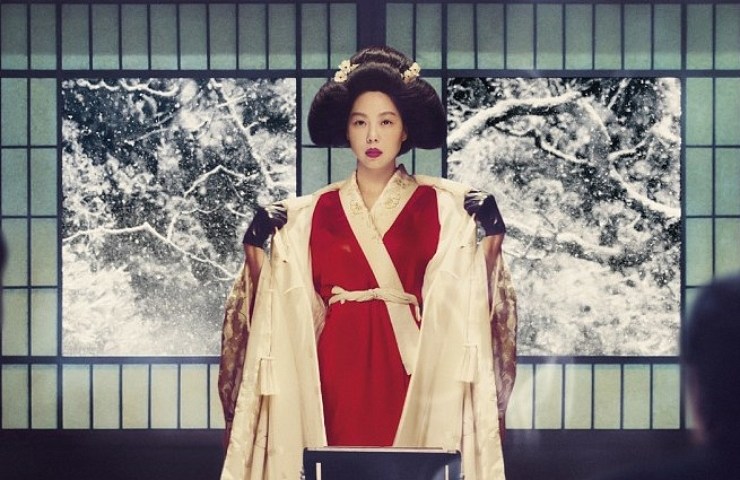Cinematic sensuality, dear “Fifty Shades” franchise, is impactful in how the director portrays it and not through sticky, pre-release headlines.
“The Handmaiden,” director Park Chan-wook’s latest tableau of vivid and borderline-sickening depravity, is a film that deserves to be in your collection. Despite frequent dips into gratuitousness to rouse, it’s been a while since a movie so resembles fireworks on New Year’s Eve: ornately designed, meticulously orchestrated, surprising and, as it should be, explosive.
Like another top-notch costumer “The Age of Shadows,” the film takes place in a Korea under Japanese rule. Sookee (Kim Tae-ri) has been living off the small trinkets she stole. The money makes her life—impoverished, cluttered and without dignity—somewhat tolerable. One day, a con man (Ha Jung-woo) offers her a promising way out: Pretend to be the maid of Japanese heiress Lady Hideko (Kim Min-hee) to persuade her to marry the con man (under the alias “Count Fujiwara”) and clear out her fortune.
The scheme falls short of perfection, however, when it seems like Sookee and Hideko have feelings for each other and the titular character begins to uncover what the mark’s estate—owned by an intimidating book-lover and Hideko’s uncle, Kouzuki (Jo Jin-woong)—is all about.
Replicating the structure of Sarah Waters’ source novel, “Fingersmith,” “The Handmaiden” is divided into three parts—each with its own surprises and perspective. There is an astonishing sleight-of-hand act here that seems to always grow and alter; a manner of execution that is frenetic and seemingly overwhelming but is always under Park’s control. Toss in unprecedented humor, plus frank displays of sexuality and core-quaking violence, and “The Handmaiden” becomes a concoction quite similar to “Oldboy” (or the remaining two entries in Park’s renowned “Vengeance Trilogy”), in the sense that the taste is repulsive but ever-desirable.
An odd combo, for sure, but Park’s two regulars, cinematographer Chung Chung-hoon and composer Jo Yeong-wook, make it work by weaving the narrative’s layered nature into their works. Every frame, while colorful, is never without danger or ulterior motives. The score, although tender due to tip-toeing flutes and fleeting strings, suggests that what you are seeing is either foreboding or forbidden. The only time that both elements seem to not show any embellishment is in the oddly amusing sex scenes—all of which seem like a blink away from hardcore territory due to their graphic nature and extended length.
Look beyond the hyper-eroticism, however, and the film reveals its true self as a tale about sympathy and passion. This renders “The Handmaiden” as a con itself in terms of genre (the films that made Park a household name in Korea and festival circuit is known, chiefly, on their shock value) and plot (the use of narration and vantage points force viewers to doubt what they see).
Yet, satisfaction is the feeling after 144 minutes here since Park has managed to get his brilliant performers to align with his reach. He has also masterfully translated the novel’s Victorian mold to that of the East without losing the emotional core. This is a superb production in every aspect from everyone involved, particularly its director.
There is a phrase, although uttered during a rather distinctive moment, that perfectly sums up the film: “Spellbindingly beautiful.”
Treat your ears to one of the best songs in the film, “My Tamako, My Sookee,” below.
The Handmaiden (Ah-ga-ssi)
Kim Tae-ri (Sookee/”Tamako”), Ha Jung-woo (“Count”), Kim Min-hee (Lady Hideko), Jo Jin-woong (Uncle Kouzuki)
Directed and written by: Park Chan-wook (“Sympathy for Lady Vengeance”)
Co-written by: Chung Seo-kyung, Sarah Waters (based on the novel “Fingersmith”)
Cinematography by: Chung Chung-hoon (“Stoker”)
144 min., R
Release date: Oct. 28
9 out of 10.





Recent Comments